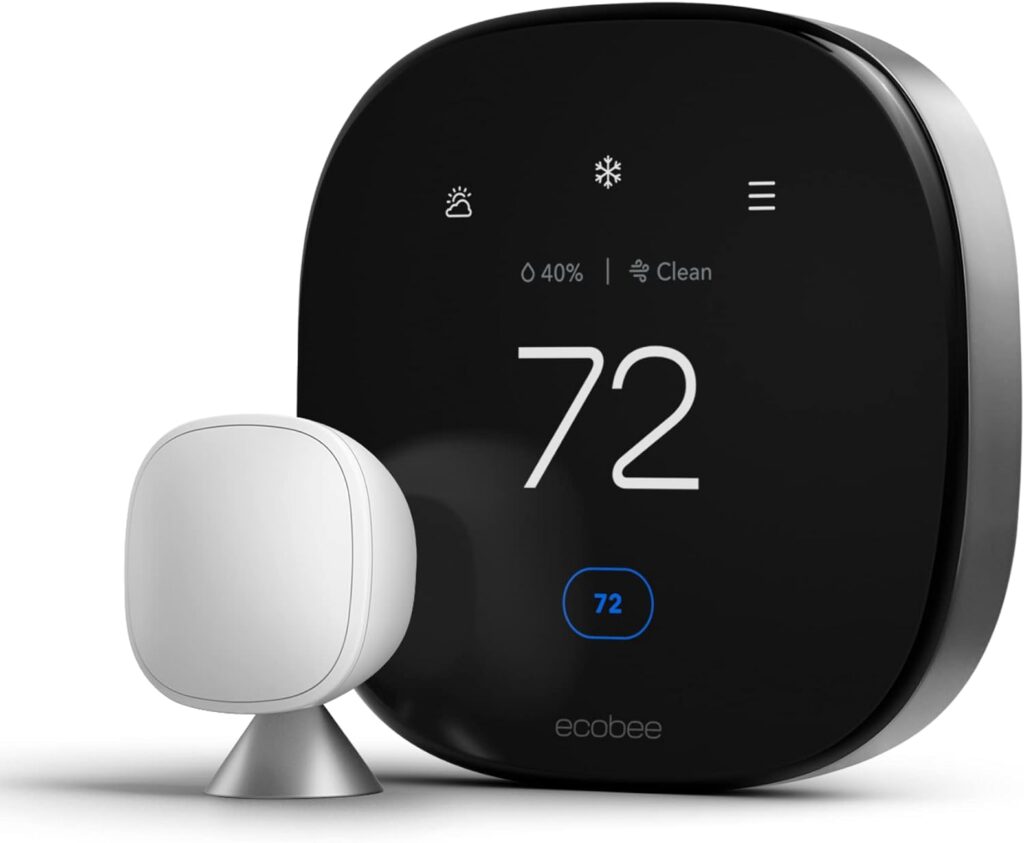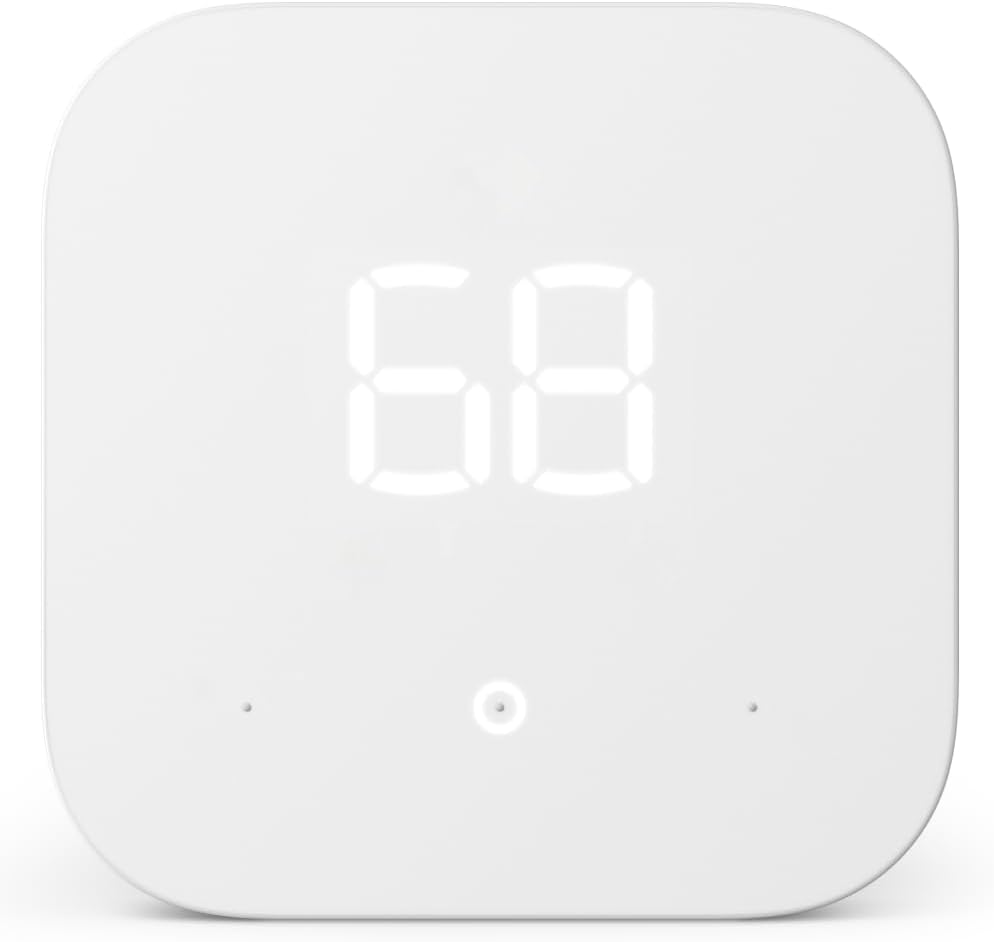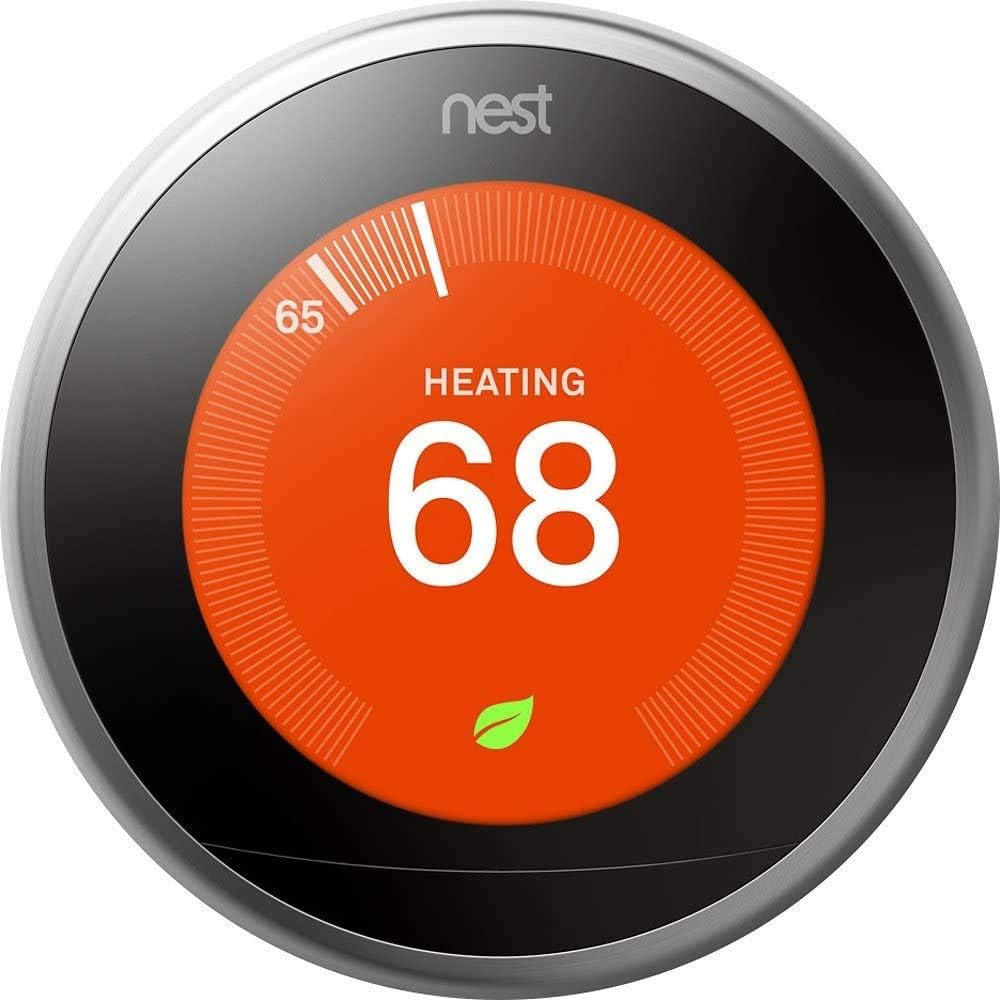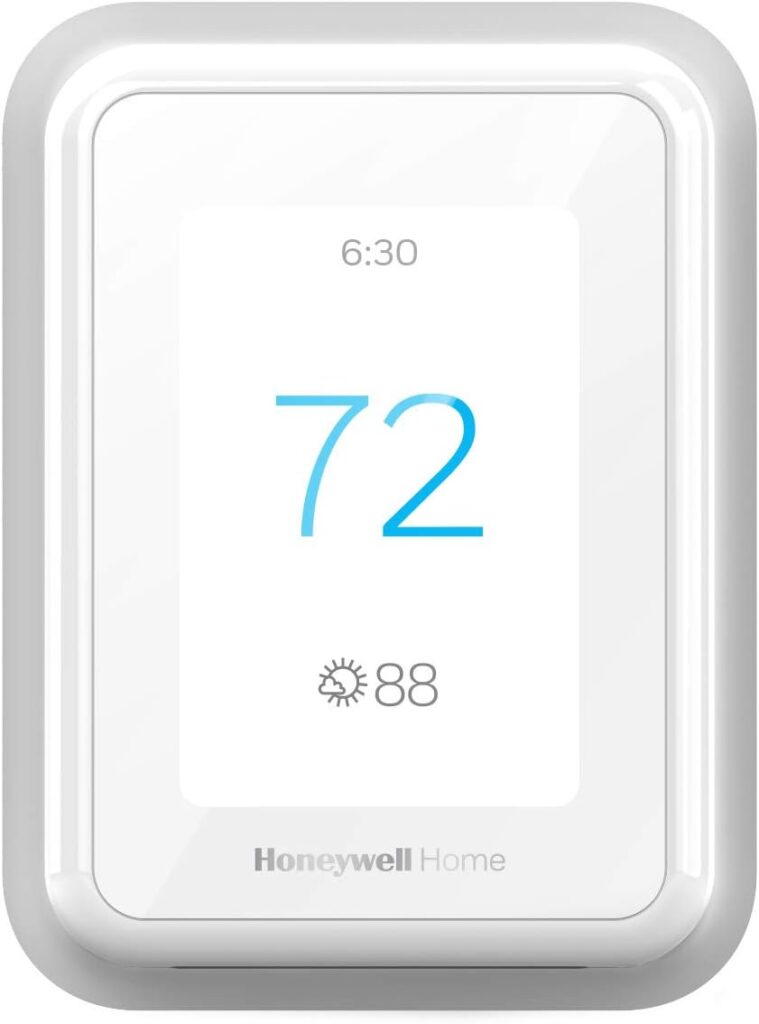Best Smart Thermostats That Can Automatically Save You Money

Smart thermostats are becoming increasingly popular among homeowners. These devices keep your home at the perfect temperature while cutting down on energy costs and contributing to a greener planet. They handle all of this automatically, so you don’t have to worry about a thing. And the best part is that you can qualify for an energy rebate from your state which significantly lowers the cost of a smart thermostat.
Smart Thermostat Energy Rebates
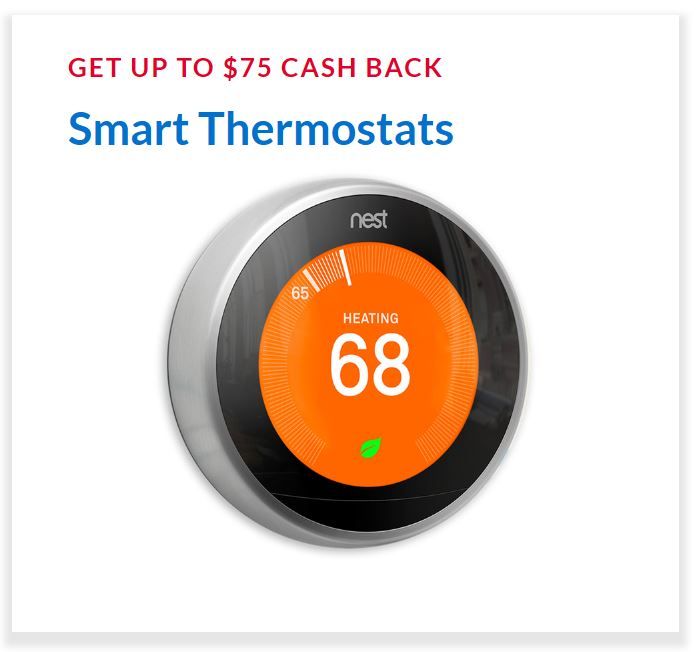
Great news for smart thermostat shoppers: You can cut the cost of a smart thermostat nearly in half by taking advantage of energy rebates. Check if your state offers rebates for smart devices that save energy.
For example, the state of Utah offers up to $75 if you purchase a new smart thermostat. Simply create an account, upload your receipt, and wait for your rebate to arrive.
Best Smart Thermostats
Our top pick for the best home thermostat is the Ecobee Smart Thermostat Premium. This advanced device is loaded with features designed to fine-tune your home’s climate, like advanced AI learning, a remote sensor, and smart home device compatibility.
There are also several other excellent thermostats available on the market. Here’s a rundown of the best smart thermostat options to consider for your home.
| Product | Estimated Price | Features | Voice Assistant Compatibility | Additional Notes | Best For |
|---|---|---|---|---|---|
| Ecobee Smart Thermostat Premium | $219 | Built-in air quality monitor, SmartSensor, Advanced occupancy sensing, Voice control with built-in speaker | Amazon Alexa, Google Home, Apple Home, Samsung SmartThings | Includes Smart Security plan option (subscription required) | Overall Best Smart Thermostat |
| Amazon Smart Thermostat | $79 | AI learning through Alexa, Easy installation, Energy-saving features | Amazon Alexa, Ring | C-wire required, lacks remote sensors | Best Budget Smart Thermostat |
| Google Nest Learning Thermostat (4th Gen) | $279 | Advanced AI learning, Smart Schedule, Includes Nest Temperature Sensor, No C-wire needed | Google Home, Amazon Alexa, Samsung SmartThings, Apple HomeKit | Sleek glass design, customizable display animations | Best Google Thermostat |
| Google Nest Learning Thermostat (3rd Gen) | $189 | Learns habits, Home/Away Assist, Remote control, Easy installation | Google Home, Amazon Alexa, Samsung SmartThings | No built-in speaker or remote sensor | Runner Up (Google Thermostat) |
| Honeywell Home T9 | $150 | Smart Room Sensors, Multi-room focus, Remote monitoring, Works with various HVAC systems | Amazon Alexa, Google Assistant, Apple HomeKit, Samsung SmartThings | Compatible with various HVAC systems, includes external room sensor | Best for Remote Monitoring |
| Sensi Touch 2 | $189 | Intuitive display, Bluetooth installation, Energy-saving settings, Room sensor support | Amazon Alexa, Google Home, Samsung SmartThings | Room sensors not included, Bluetooth installation | Best Display |
Best Smart Thermostat Overall - Ecobee Smart Thermostat Premium
The Ecobee Smart Thermostat Premium is our number one choice. This top-rated thermostat is also one of the most expensive on our list, with the Premium model costing $219 on Amazon. However, the extra cost is worth it if you want cutting-edge technology and maximum efficiency.
[starbox color=“lightblue”]🌟 The Ecobee Smart Thermostat Premium includes a built-in air quality monitor and advanced occupancy sensing.[/starbox]
This model comes with several advanced features that can be used to perfectly adjust your indoor climate, including the most intelligent remote sensor on the market, a virtual assistant, and an air-quality monitor. The thermostat detects humidity levels and adjusts temperature accordingly. It even offers a four-day weather forecast and can double as a Bluetooth speaker. For added peace of mind, there’s also the option to purchase a Smart Security plan that unlocks smoke alarm detection and potential break-in alerts.
👉 Related reading: Ecobee Smart Thermostat Humidity Guide
Another convenient feature is voice control, using a built-in microphone and speaker. It’s compatible with Amazon Alexa, Google Home, Apple Home, and Samsung SmartThings. The only downside is that setup might be a bit more complex than other models. On average, it takes around 45 minutes to install. This thermostat works with a C-wire, but if your home doesn’t have one, you can also use the included Power Extender Kit.
Best Budget Smart Thermostat - Amazon Smart Thermostat
If you’re looking for a budget-friendly smart thermostat that covers the basics without all the bells and whistles, the Amazon Smart Thermostat is a solid choice. At just $79.99 on Amazon, it delivers the core functionality of pricier models at a significantly lower cost.
[starbox color=“lightblue”]🌟 Amazon’s Smart Thermostat supports AI learning through Alexa ‘hunches’ to adjust based on habits.[/starbox]
This thermostat includes features like schedule setting and AI-powered learning through Alexa “hunches,” which can suggest custom settings based on your habits. It’s also incredibly easy to install and use. A C-wire is required for the basic model, but you can also purchase a C-wire adapter for about an extra $20. However, it does have some limitations, such as the lack of remote sensors and compatibility only with Amazon’s Alexa and Ring devices.
Best Google Thermostat - Nest Learning Thermostat (4th Gen)
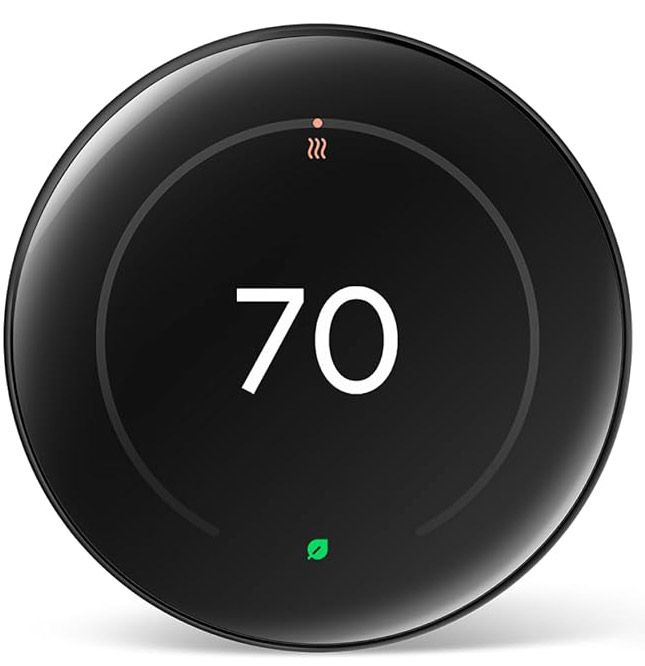
The 4th generation Google Nest Learning Thermostat is the company’s latest model, nearly outscoring the popular Ecobee Premium. Priced at $279.99 on Amazon, this device is at the premium end of the market, but it offers features that make it well worth the investment.
[starbox color=“lightblue”]🌟 The Nest 4th Gen can help save up to 12% on heating bills and 15% on cooling bills with its energy-saving features.[/starbox]
Perhaps its most impressive feature is its advanced adaptive AI capabilities, which not only learn your temperature preferences but also take into account outdoor weather conditions to optimize your home’s climate. For example, on a sunny winter day, the thermostat can pause your heating system to let the natural warmth from the sun do the work – saving you both energy and money. As a bonus, Smart Schedule learns your preferred temperature settings at different times and makes suggestions to help you save more.
The design is also a big upgrade from previous generations. The sleek glass panel and large, borderless display give it a modern, sophisticated look, while the display’s animations provide clear, useful information at a glance. A Nest Temperature Sensor is also included for targeting specific areas of your home.
Another thing we like about this generation of the Google Nest Learning Thermostat is that it is super easy to install. The device works with most 24V HVAC systems, and it does not require a C-wire.
Runner Up - Google Nest Learning Thermostat (3rd Gen)
The 3rd generation Google Nest Learning Thermostat is a great, affordable alternative to the more expensive 4th gen version. It’s one of the most hands-off smart thermostats, thanks to its built-in AI that learns your habits and preferences. It’s also one of the easiest to set up since it can function with or without a C-wire. This is great news for renters or anyone hesitant about dealing with complex wiring.
[starbox color=“lightblue”]🌟 The Google Nest Learning Thermostat (3rd Gen) learns your habits and adjusts the temperature automatically.[/starbox]
At $189 on Amazon, it’s still pretty pricey, but the ease of installation and the convenience of a thermostat that practically programs itself could make it well worth the extra cost. And, it’s much cheaper than the newest Google Nest Learning Thermostat model.
That said, its AI may occasionally need manual tweaking, and this version of the Nest Learning Thermostat doesn’t include a remote sensor or built-in smart-speaker capabilities. Even so, its ability to sense when you’re home or away and compatibility with Amazon Alexa, Google Home, and Samsung SmartThings place it on our list of the best smart thermostats.
Best Smart Thermostat For Remote Monitoring - Honeywell Home T9
Priced around $150 on Amazon, the Honeywell Home T9 combines the advanced features you’d expect from a smart thermostat with the simplicity of traditional models. You don’t need an app to set it up, and the installation instructions are easy to follow. Keep in mind, though, that this model requires a C-wire for installation and isn’t compatible with electric baseboard heating.
[starbox color=“lightblue”]🌟 The Honeywell T9 comes with an external sensor to focus on specific rooms for better comfort control.[/starbox]
If remote monitoring is what you’re after, the T9 excels in this department. Both the thermostat itself and its app feature clean, intuitive user interfaces that make it easy to control your smart thermostat from anywhere, whether you’re at home or on the go.
The T9 also integrates seamlessly with a wide range of smart home ecosystems, including Amazon Alexa, Google Assistant, Apple HomeKit, Microsoft Cortana, and Samsung SmartThings. Plus, it comes equipped with an external room sensor, which lets you focus on specific areas in your home.
Best Smart Thermostat Display - Sensi Touch 2
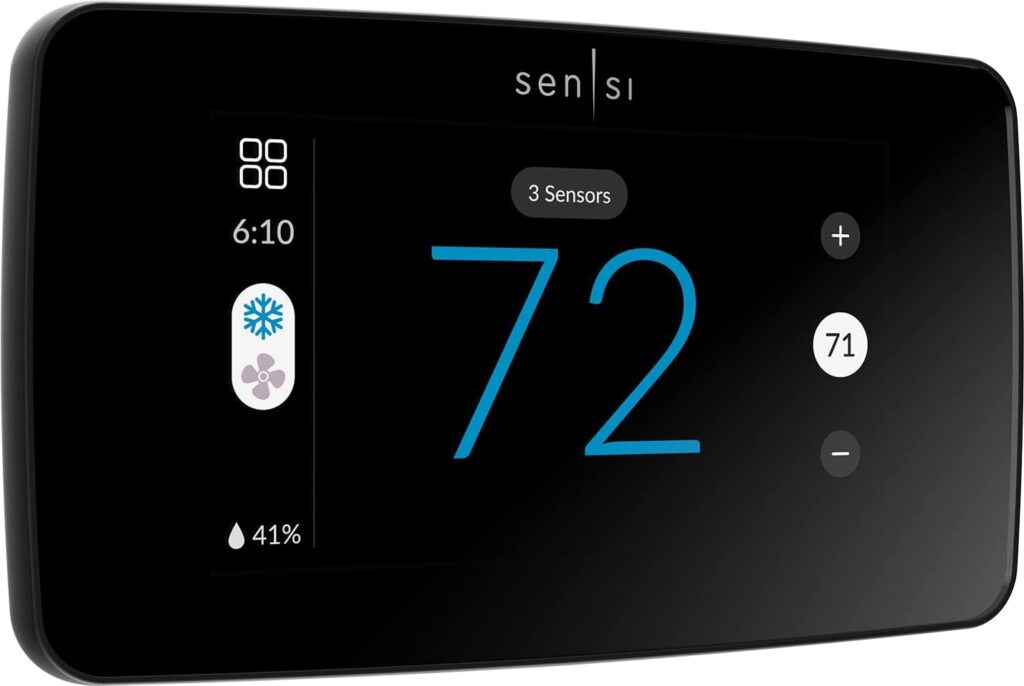
Whether you’re tech-savvy or prefer a more hands-on approach, the Sensi Touch 2 is a great choice. Retailing at $189 on Amazon, it offers a perfect balance of smart technology and ease of use. While the app is solid and the thermostat integrates seamlessly with Alexa, Google Home, and Samsung SmartThings, this thermostat’s biggest selling point is its intuitive, user-friendly display.
[starbox color=“lightblue”]🌟 The Sensi Touch 2 features a user-friendly display so it’s easy to adjust and monitor your home’s temperature.[/starbox]
Unlike some other smart thermostats that come with a bit of a learning curve, the Sensi Touch 2 is straightforward and accessible for everyone. The temperature setting is prominently displayed, so you always know exactly what your home’s climate is set to, and adjusting it is as simple as a quick tap. Another useful feature is the ability to set a temperature range with just a few touches.
As a bonus, the Sensi Touch 2 is easy to install. While a C-wire is required, the installation uses Bluetooth to streamline the process. It’s also compatible with room sensors, but these are not included and must be purchased separately.
Are Smart Thermostats Worth It?

Smart thermostats can help you save energy and money, and energy rebates make them an even better deal. Many states in the U.S. offer energy rebates for smart thermostats, which could potentially cut the price in half. But even if a rebate is not available, having a smart thermostat can still be worth it.
A smart thermostat’s main purpose is to optimize your HVAC system by running it only when necessary, helping you save both energy and money. This is a win for both the planet and your wallet.
Heating and cooling account for the largest portion of energy use in American homes, so even a small reduction in usage can lead to significant savings. According to the EPA, energy savings are typically around 8% or $50 per year, but this can vary depending on the climate you live in and your personal preferences, as well as the specific device you buy. For instance, Ecobee estimates savings at 26% of your annual heating and cooling costs.
But, if your energy habits don’t change, you might just end up with a fancy gadget without seeing much difference in your bills. It’s also important to weigh the potential benefits against concerns like privacy and data security. If you’re uncomfortable with the amount of data these devices collect and share, you may be better off looking into options for the best programmable thermostat.
In addition to energy savings, smart thermostats make life more convenient with features like remote temperature control via your phone or voice commands. If you’re someone who frequently adjusts the temperature or wants to have more control over your energy consumption, a smart thermostat could be a game-changer.
Smart thermostats can also be invaluable if you travel frequently since they allow you to keep tabs on your HVAC system from a distance. Or, if you’re a caregiver, you can use a smart thermostat to make sure your loved ones are comfortable without needing to be there in person.
Factors To Consider When Shopping for a Smart Thermostat
When shopping for a smart thermostat, there are several key factors to consider to ensure you choose the best device for your home and lifestyle.
Here’s what you need to keep in mind:
Smart Home Integration

When choosing a smart thermostat, you should take into account how well it will integrate with your existing smart home setup. Most smart thermostats allow you to control them via an app on your smartphone, but not all are compatible with every smart home ecosystem.
If you’re using a specific system like Amazon Alexa, Google Home, Samsung SmartThings, or Apple HomeKit, it’s important to pick a thermostat that is compatible with the device you already own. Ensuring your new thermostat will integrate with your other smart devices will save you from frustration down the line and allow for smoother home automation.
Price
Cost is another factor to consider when selecting the best smart thermostat for your home. Your personal budget and the level of sophistication you’re looking for in a thermostat will guide your decision.
If you’re focused on core functionality and energy savings without breaking the bank, a budget-friendly option like Amazon’s smart thermostat might be all you need. However, if you’re willing to invest more for advanced features and top-tier performance, you might want to go for a higher-end thermostat like Google Nest’s 4th gen device or Ecobee’s premium model.
Geofencing
Geofencing is a particularly useful feature if you want your thermostat to adjust the temperature based on whether or not you’re home. This feature uses your smartphone’s location to detect when you’re away and change the temperature accordingly to save energy.
Some thermostats also track occupancy using every house member’s phone to sense when they are home. On most devices, you can customize these settings. For instance, you can set how far away you need to be for the temperature adjustments to kick in or set specific temperature limits for when you’re not home, which is especially important if you have pets, as you’ll want to ensure your home stays within a comfortable range while you’re out. You can also turn off this feature altogether if you don’t want it to track you.
Ease of Installation
Most smart thermostats are designed with easy self-installation in mind and include straightforward instructions. Many newer models also come with handy labels to help you identify individual wires during installation.
Before you make a purchase, you will need to find out if the thermostat works with your HVAC system. Common types of HVAC systems include gas, electric, propane, oil, forced air, and radiant heating. Not all smart thermostats work with every system, so it’s important to ensure you choose a compatible model.
C-Wire
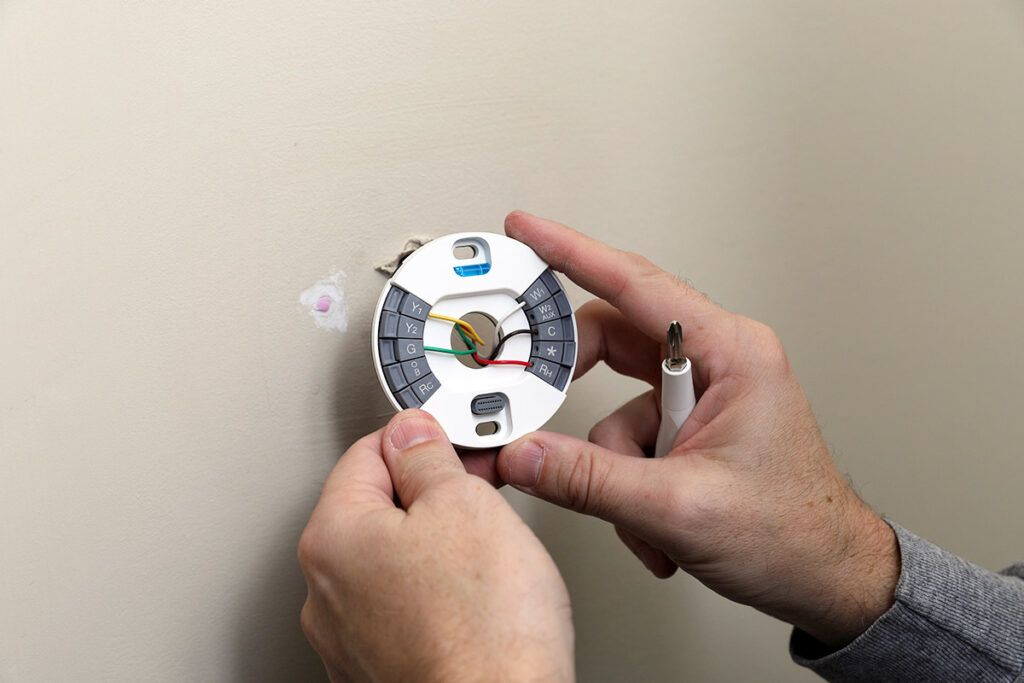
The white wire is typically the C wire.
Before purchasing a smart thermostat, check whether your HVAC system has a C-wire (common wire) installed. The C-wire provides continuous power to your thermostat, which is necessary for many smart models. If your system doesn’t have a C-wire, it’s not necessarily a deal-breaker.
Some thermostats, like those from Google Nest, can work without one, although they might have limited features or require more frequent battery changes. Alternatively, you can install a C-wire adapter, which often comes with the thermostat, though this might require some additional wiring work. Ensuring compatibility and understanding the installation process will save you from potential headaches and help you make the most of your new smart thermostat.
External Sensors
Many smart thermostats support external sensors that let you fine-tune the temperature in different areas of your home. Most thermostats measure the temperature only at the point where they’re mounted, which might not reflect the conditions in other rooms. But external sensors are great because they can be strategically placed throughout your home to let you monitor specific rooms, like a muggy bedroom or chilly office.
Often, these sensors can also detect when a room is occupied and adjust the temperature accordingly. If it’s important to you to be able to target problem spots in your home, look for a thermostat that supports external sensors. Some models include these as part of the package, and others require you to purchase them separately.
Can You Install Smart Thermostats By Yourself?

Installing a smart thermostat yourself is certainly doable, even if you’re not an expert DIYer. While the installation process can vary slightly between thermostats, the general process is similar.
You’ll need a few basic tools, including a screwdriver, pliers for handling wires, and possibly a drill and level. Then, you just have to follow the instructions provided in your chosen device’s included manual. Some devices require you to use an app to access self-installation steps.
Typically, these steps are pretty straightforward: Turn off the power, label the wires, remove the old thermostat, connect the new one, and mount it on the wall. However, one potential complication to be aware of is whether your system has a C-wire.
The C-wire, or common wire, is a common requirement for powering the advanced features of most smart thermostats, which require more electricity than traditional ones. Most older homes may not have a C-wire because older thermostats don’t need the extra power.
If your system doesn’t have one, you have a couple of options. You can choose a smart thermostat that doesn’t require a C-wire, like the Google Nest Learning Thermostat, which charges its battery using other wires. However, be mindful that some users report issues like short cycling with this setup.
Or, if you choose a thermostat that does need a C-wire, you can install an adapter kit, which converts one of your existing wires into a C-wire. Many smart thermostats, like the Ecobee Smart Thermostat, include these kits. But, if not, they’re relatively inexpensive (usually around $25 or so) to purchase separately.
Final Thoughts
If you’re looking to cut down on your energy usage while saving some money on heating and cooling bills, purchasing a smart thermostat could be a smart move – especially if you qualify for an energy rebate from your state. However, before you make the investment, it helps to understand how you’re going to use it.
Ask yourself: Are you looking for energy savings, seamless smart home integration, remote monitoring, or just trying to gain a clearer picture of your energy consumption?
While all smart thermostats make it easier to maintain the perfect temperature in your home, they each excel in different areas and come with various features. Some models like the Nest Learning Thermostat and the top-rated thermostat from Ecobee offer advanced capabilities like remote sensors, voice control, and compatibility with other smart devices.
However, if you aren’t planning to take full advantage of these extra features, you might not find the extra expense associated with a premium model to be worthwhile. Instead, a simpler, more affordable device like the Amazon Smart Thermostat might be a more sensible option.
Knowing your goals will help you choose the right thermostat for your needs. All in all, the best home thermostat for you will depend on your unique preferences, habits, and budget.
For more smart home ideas, don’t miss our 2025 guide to the best smart home devices.
Continue reading:
